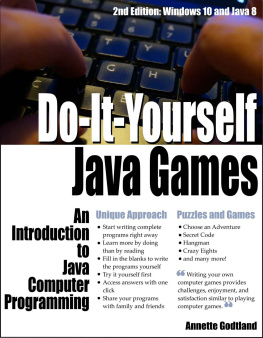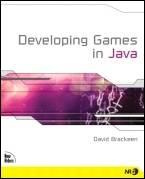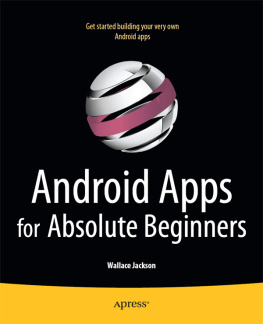1. The Different Faces of Java: Create a Java 9 Development Workstation
Welcome to the Pro Java 9 Games Development book. In this first chapter, Im going to discuss the various versions of Java which are still being used today to develop software applications for open source platforms such as Android, as well as for open source browsers based on WebKit, such as Google Chrome, Mozilla Firefox, Apple Safari, and Opera. After going over which versions of Java, spanning from JDK 1.6, also known as Java 6, through JDK 1.9, which was recently released as Java 9, will need to be used to develop for various versions of these popular platforms. Well also need to take a detailed look at how to create a professional Java 9 software development workstation for use during the rest of this book. This will include other software such as new media content production software packages which can be used with your Java software development packages to create games and IoT (Internet of Things) applications.
The core of your workstation will be either a Java 8 SDK or Software Development Kit which is also referred to as the JDK or Java Development Kit , or the new Java 9 JDK , which came out in 2017 and is more modular than Java 8, but which features the same classes and methods for creating games or IoT user experiences. This fact will allow us to safely focus on both Java 8, as well as Java 9, during the course of the book. This is because, for our purposes, these are fundamentally the same, allowing us to focus on the latest Java APIs, and not on what Java version you are using. In fact, since we are going to focus on Javas multimedia APIs, commonly known as JavaFX, what you learn during this book can also be coded in Java 7 as well! Android recently upgraded to Java 7 and Java 8 compatibility (from Java 6).
We will also set you up with a NetBeans 9.0 IDE , or Integrated Development Environment , which will make coding Java 8 or 9 games so much easier. Expect to use NetBeans 9 once Java 9 comes out in Q4 of 2017, since NetBeans 9 IDE will have been upgraded significantly to accommodate the new modular nature of Java 9 and will allow you to mix functional modules , to create custom Java package collections (API versions) for any type of application development.
After your Java JDK and NetBeans IDE are configured, we will get you setup with the latest open source new media content creation software packages, including professional software packages such as GIMP for digital imaging, InkScape for digital illustration, DaVinci Resolve for digital video editing or special effects, Audacity for digital audio editing, Fusion for special effects and 3D, Open Office 4 Suite for Business and Project management, Blender for 3D modeling, texturing, animation, rendering, particle systems, fluid dynamics or special effects, and Terragen 4 for virtual planets.
At the end of this chapter, I might even suggest some other professional level software packages, which you should consider adding to this professional game development workstation that we will be creating during the course of this chapter. In this way, you will have an incredibly valuable production resource for your business, by the time we are finished with this first chapter. Hopefully, just this first chapter alone will be worth what youve paid for this entire book, as you can pay $500 for a powerful 64-bit workstation, and make it worth five figures in just a couple of hours!
We will also be going over some hardware requirements and considerations for your new Java 9 content production workstation. Finally, note the Java code in this book will work just as well in a Java 8 IDE (or integrated development environment), so this book could just as easily be called the Pro Java 8 Games Development book!
Java Dichotomy: Versions Used in Various Platforms
There are a number of different versions of Java which are still widely used for development across a number of different popular platforms, including Java 6 for 32-bit Android (Versions 1.x, 2.x, 3.x and 4.x of Android are 32-bit), as well as Java 7 for early 64-bit Android versions (5.0, 5.1, and 6.0), Java 8 for recent Android Versions (7.0, 7.1.2, 8.0), and Java 9 for Windows 10 OS, Ubuntu Linux OS (and other Linux distributions), Macintosh OSX, and Open Solaris OS.
It is important to note that there are three primary versions of Java; Java ME or Micro Edition is optimized for embedded devices, Java SE or Standard Edition , which well be covering, which is used on the client side as well as in mobile consumer electronics devices and in iTV sets, and Java EE , or Enterprise Edition , which could be thought of as a server side paradigm, as large corporate computing environments are generally server-based, and not peer to peer (pure client side, with client to client inter-communication possible, in addition to client-server interactions).
Java 6, released in December of 2006 (over a decade ago), is still widely used in conjunction with the Eclipse IDE to develop applications for all 32-bit versions of Android, from version 1.0 through version 4.4. This is because this is the Java version Google originally specified for use in developing 32-bit Android applications, when Android 1.0 was released in September of 2008. It is important to note that Google created a custom version of Java 6, using the Open Java Project, but this wont effect the programming API, as the classes, methods, and interfaces still function the same way that they would if you were using Java 6 in the NetBeans IDE or the IntelliJ IDEA, instead of using the Eclipse IDE .
When Google upgraded Android to a 64-bit Linux Kernel, in Android 5.x, which uses the Android Studio IDEA based on IntelliJ, they upgraded to using Java 7, which also has a 64-bit version. Java 7 was released in July of 2011. So if you are developing Android 5-6 applications for advanced platforms, such as Android Wear, which is covered in my Pro Android Wearables (2015) title from Apress, or Android TV or Android Auto, covered in Android Apps for Absolute Beginners (2017) title from Apress, you will want to utilize Java 7. The JavaFX 8 engine found in JavaFX 8 and JavaFX 9, has been back-ported to Java 7 as well; however Java 7 was retired this year. Java 6, 7 and 8 are still used in Android .
Java 8 is the current version of Java SE, as of the writing of this book, and additionally, features the powerful JavaFX 8.0 multimedia engine, which has also been made compatible with Java 7, although JavaFX 8.0 APIs are not yet natively supported inside of the Android APIs. It is however, possible to develop JavaFX 8 or 9 applications that run on both Android OS and iOS platforms, making this book significantly more valueable to our readers! Java 8 is supported across all popular browsers, in Android 7, 7.1.2 and 8.0, and across all four of the popular OSes, including Windows 7, 8.1 and 10, in all Linux Distros, Macintosh OS/X, and Open Solaris from Oracle. Java 8 was released in March of 2014, and added a powerful new feature called Lambda Expressions , which we will be covering during the book, as this is a way to write more compact code, which is also often more multi-processor (and multi-thread) efficient.
Java 9 is the next major revision of Java. Java 9 was released September 22, 2017. The primary new feature in Java 9 that the Java language developers are reworking is making the Java 9 language API modular . This will allow Java 9 developers to mix and match features in modules (code libraries), and create their own custom, optimized versions of Java. These custom Java versions would work exactly the way that the developer will need it to for custom development environments or custom applications. As of the release of this book, NetBeans 9 is still in development.

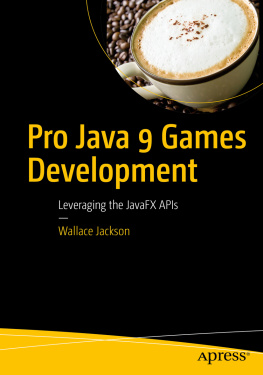
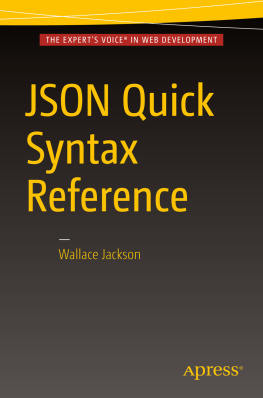
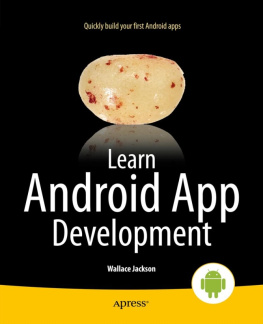
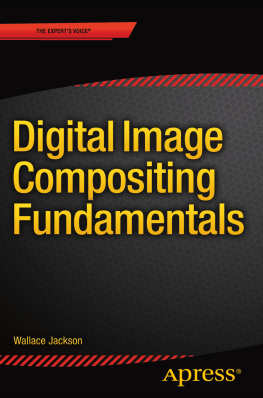
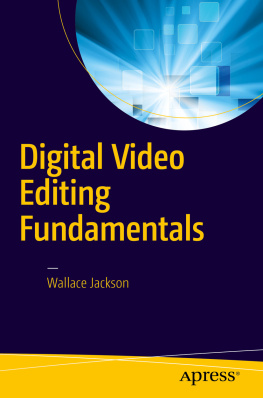
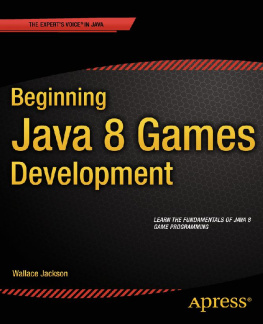
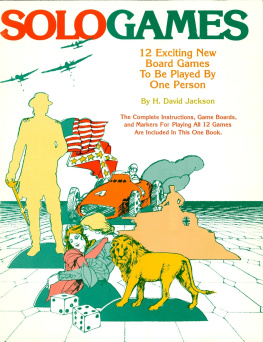
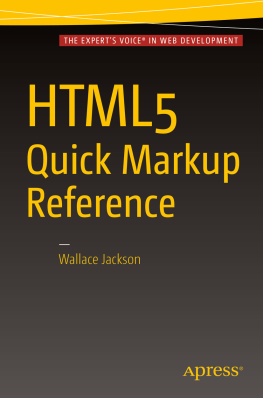
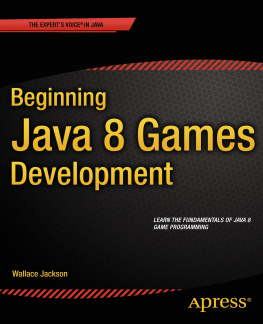
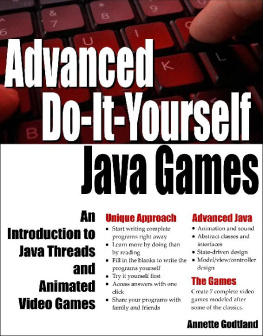
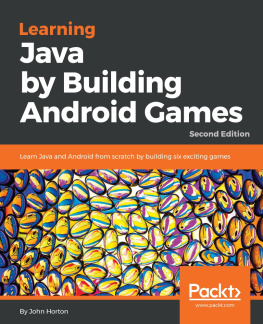
![Wallace Jackson [Wallace Jackson] - Beginning Java 8 Games Development](/uploads/posts/book/119391/thumbs/wallace-jackson-wallace-jackson-beginning-java.jpg)

